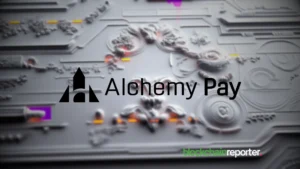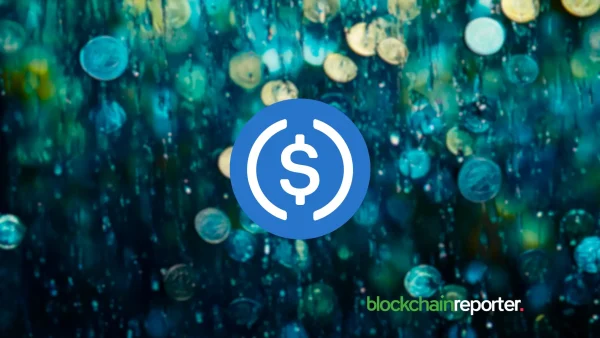
About two weeks prior to the collapse of the once-prominent and prosperous FTX trading platform, the renowned decentralized finance architect Andre Cronje penned an article on his Medium blog warning of the current state of centralized cryptocurrency exchanges.
Cronje warned that “remedies under the current regulatory regime are ineffective”, explaining that most platform users sign away their rights to the crypto they own by agreeing to voluminous terms and conditions. He said the ToC means that most investors will only be considered as “unsecured creditors” in the event that the exchange ends up being liquidated. While crypto exchanges essentially operate as banks, they do so “without the safeguards and regulation which banks are required to follow.”
Cronje’s words turned out to be incredibly prescient. With FTX’s downfall just two weeks later, thousands of crypto investors discovered that for all of the guarantees the exchange had provided, their assets were unprotected and became inaccessible. FTX filed for bankruptcy with a shortfall of a reported $8 billion, due to what U.S. investigators say was the result of its executives siphoning customer assets and using them for risky investments via its sister organization Alameda Research. While the exchange’s new management does claim to have recovered some of those assets, FTX customers’ funds are currently frozen as bankruptcy proceedings go on.
In the wake of FTX’s collapse, the crypto community has raised significant concerns over the promises and guarantees of centralized crypto exchanges. While many have responded by demonstrating proof of their assets and liabilities, segregating customer’s funds and registering voluntarily as broker-dealers, it has become clear that using a crypto exchange is still a very risky business in what remains an almost completely unregulated industry.
Lack Of Trust Is An Opportunity For TradFi
It will likely take the crypto industry many years to fully address user’s concerns over the safety of exchanges, and whatever measures are taken will likely result in additional questions and further regulatory scrutiny of these platforms.
Given the inability of the crypto exchange incumbents to fully address investor’s concerns, there could be an opening for more established and trusted players from the world of traditional finance to take on a leading role in the business.
Traditional financial institutions appear to have spotted this opportunity, and many prestigious names are now looking to make their presence felt in crypto. The key advantage of TradFi institutions is that their traditional businesses are already heavily regulated, and that can help to reassure customers that they’ll also play by the rules when it comes to crypto.
This summer, a number of the world’s largest financial institutions hit the headlines when they submitted their applications for Bitcoin ETFs, and an even more promising development occurred with the launch of EDX Markets. It’s a new crypto exchange platform backed by major TradFi players including Fidelity Digital Assets, Charles Schwab and Citadel Securities. Those three giants are among the world’s most respected financial institutions.
Of course, investors naturally have questions over what EDX Markets will do to avoid collapsing into bankruptcy or find itself in the crosshairs of the U.S. Securities and Exchange Commission, which is currently taking legal action against two of the industry’s biggest centralized exchanges, Binance and Coinbase.
Jamil Nazarali, the CEO of EDX Markets, has tried to answer these questions by saying that the exchange will do things differently. The primary difference is that it will not provide custodial services for client’s digital assets. Rather, it will ensure that customers go through financial intermediaries when they buy and sell cryptocurrencies and other digital assets such as NFTs. In this way, EDX Markets aims to separate the exchange platform from the broker-dealer function, in order to create greater trust in its platform and avoid regulatory scrutiny.
Another TradFi player, MultiBank Group, also intends to leverage its strong reputation for professionalism and trust. The company is a major player in the world of financial derivatives trading, and is now taking on crypto with the launch of its MultiBank.io platform.
Its MultiBankFX platform is one of the leading hubs for derivative products including forex, shares, metals, indices, commodities and crypto CFDs. Now, with MultiBank.io, it’s pioneering a crypto spot exchange that will soon launch crypto futures trading and other capabilities.
Having been established in 2005, MultiBank proudly proclaims that it’s one of the world’s most regulated trading platforms, holding 12 licenses globally and serving over one million customers, with a daily trading volume of over $12 billion. This dedication to transparency can quickly win the trust of crypto investors, as it’s clear that MultiBank would not want to risk damaging its reputation and put its TradFi business at risk.
Reinforcing Trust For Crypto Investors
The launch of EDX Markets and MultiBank highlights the obvious benefits that arise when TradFi incumbents collaborate with the crypto industry. Although banks and financial institutions do sometimes break the rules and get slapped with fines, they still provide consumers with a much greater level of trust, as customers know that their financial assets enjoy a strong level of protection. TradFi players are much more transparent than their counterparts in the crypto industry, and tend to be very consistent in the way they report and manage their data.
The compliance and regulatory requirements of TradFi may not align with the decentralization-based values held so dear by crypto. But as these institutions move into the industry, there’s a perception they’re more likely to operate according to the strict rules they already adhere to in their primary businesses.
Centralized crypto exchanges are struggling to regain the trust consumers had in them prior to the collapse of FTX, but with TradFi now entering the industry, we can be more optimistic that it will return.









